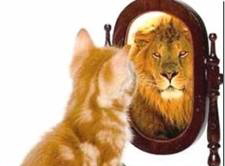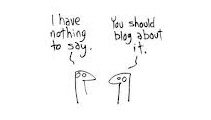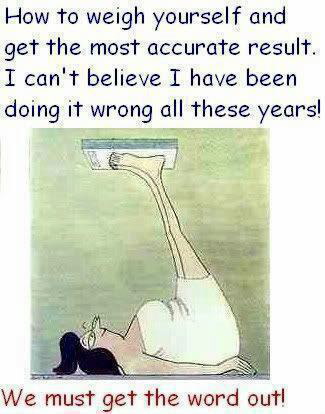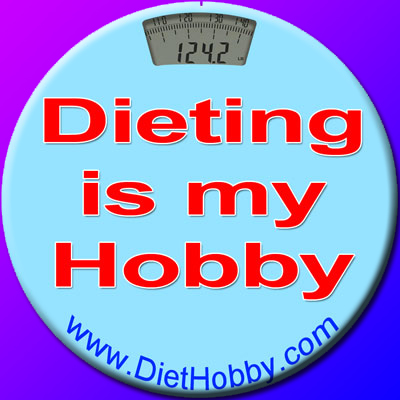Breaking Bad Habits
- POSTED ON: Mar 19, 2013

We all know it is hard to Break Bad Habits.
Here are some reasons Why.
5 Ways Your Brain Tricks You into Sticking With Bad Habits
by Dennis Hong - 9/26/2012 at www. cracked.com
Bad habits can ruin your life. Whether you're gorging on Haagen-Dazs or dressing up like a Power Ranger and flaying hobos every night, you know on some level that things have to change, or disaster will follow. But no matter how badly you want your life to be different, things just keep plowing on the way they are. Why?
Because your brain has a long list of diabolical mechanisms intended to keep your habits exactly as they are.
#5. Your Brain Thinks Your Future Self Is a Different Person
You knew you had to be up at 7 a.m. for a big exam. But there you were, at one in the morning, watching every minute of a double feature on cable including Timecop and a second showing of Timecop. On a conscious level, you knew you were screwing yourself. But on a subconscious level, you always think of the tomorrow version of you as a completely different person. That guy can deal with the consequences; the night version is watching some fucking Jean-Claude Van Damme.
Well, don't feel so bad. Science says that this feature is built into your brain.
Brain scans have shown that different parts of our brain light up when we're thinking of ourselves versus when we're thinking of other people. That part makes sense -- your brain is partitioned out into separate regions for yourself and for everyone else because you have to look out for yourself first. But where it gets weird is that in some people, when they're asked to think about their future selves, the region that lights up is the one reserved for other people.
In other words, if someone asks you to think about what you'll look like in 20 years, your brain treats it as though you're trying to picture some bizarre stranger. Now think about what that means in terms of your ability to fix what's wrong in your life. What motivation do you have to abstain from your 14th peanut butter doughnut today just to help out some droopy manimal in the future? Logically, you understand that you're endangering the person you'll become, but subconsciously, your brain doesn't have the sympathy to spare for that poor slob, and just wants to enjoy the doughnut.
#4. It Takes 10 Weeks of Work to Build a Good Habit
Let's say you have a habit or two you need to break, and you decide to start by picking up some good habits, because as we all know, the surefire way to overcome an addiction is to replace it with another addiction. So, you waddle over to the local gym, sign up for a membership and plan to start working out three times a week to help control your cravings for pie or cocaine or cocaine pie.
So, how much uninterrupted effort would you say it takes to start to become a gym person? As in, how long until you begin to accept working out as an automatic part of your life, rather than a grievous tax on your muscles and time?
Well, according to one study, habits take 66 days to form. That's right; it takes the better part of 10 weeks before any sort of new behavior you're trying to adopt starts to feel automatic. That means you're looking at over two months before that treadmill at the gym becomes more "weekly routine" and less "Spanish Inquisition."
And that's more than two months during which any kind of change in your routine can disrupt the process. You have a week when you can't work out because you get the flu, or pull a muscle, or have to work a bunch of overtime at the slaughterhouse. Boom, habit broken. This is when you snap back into your old habits, because they, too, were formed by long stretches of repetition. Your nightly date with Jack Daniel's and Facebook is firmly etched into your brain thanks to years of practice.
It's not because your brain hates you; it's because your brain likes efficiency, and mindless habits are efficient. See, what your brain really wants is to shift into autopilot, to turn your life into repetitive patterns and create heuristics -- mental shortcuts that help you get through the day using the least amount of brain power necessary. Heuristics allow you to drive to work half asleep and hung over, and get there with no recollection of the trip you just made. They compel you to repeat the same little things over and over day after day, because these routines require way less energy.
But breaking out of one requires an enormous amount of energy. If you want to change your routine, your previously automatic, effortless choices now have to be made using a conscious, concerted effort. And it will be exhausting. We don't just mean physical effort -- obviously riding a bike to work is more tiring than hiring a rickshaw. We mean just making the decisions is tiring. Which brings us to the fact that ...
#3. Your Willpower Is a Finite Resource
Of course, what is probably more likely to trip you up during your 10 weeks of learning to be the type of person who jogs every morning isn't some uncontrollable circumstance, but your own lack of motivation. Specifically, this shows up as the sense that, because you've been so good with the jogging, you owe it to yourself to take a break.
Once again, scientists can get this same result in the lab -- exercising your willpower in one instance simply makes it more difficult to exercise it in the next. There's even a term for it now: willpower depletion. It is every bit as depressing as it sounds.
For instance, in one study, scientists asked one group of students to memorize a two-digit number, and another group a seven-digit number. They then offered both groups a choice between cake and fruit salad. Amazingly, the students who memorized the longer number were twice as likely to choose the cake. It's as though the simple act of remembering five extra digits was enough to reduce their willpower to a trembling white flag.
Then you have this study, which tried it from the opposite direction: Volunteers were shown a plate of freshly baked cookies and a plate of radishes. Half of them were instructed to take a cookie, and the other half were instructed to take a radish. All were then asked to complete a difficult geometric puzzle. Bizarrely, those who had been told to take a radish gave up on the puzzle after only eight minutes, while those who were told to take a cookie stuck with it for a full 19 minutes.
Even though no physical effort was involved, simply being forced to resist cookies actually depleted the volunteers' will to solve a puzzle, because apparently we never really stop being toddlers.
This one has another way of sneaking up on you, too, because ...
#2. Your Brain Uses Progress as an Excuse for Self-Indulgence
In a recent study, scientists gathered a group of successful dieters and started manipulating their self-control. Splitting the volunteers into two groups, they praised the volunteers in the first group for how much progress they had made toward their ideal weight. They made no mention of any kind of progress to the other group, and presumably just stood there scowling.
Then, they offered all of the volunteers their choice of either an apple or a chocolate bar as a thank-you gift for participating in their study. A whopping 85 percent of those who had been reminded of their success chose the chocolate, as opposed to only 58 percent of the other group. In essence, those who had been praised for their success figured they could reward themselves just this once with some candy, while the others sat eating apples and brooding in the quiet shame of failure.
In other words, simply acknowledging success triggered failure.
And that wouldn't be a big deal if all it meant was that the occasional "You look great!" compliment resulted in one celebratory cheeseburger later. But as any recovering addict can tell you, it's never "just one" -- one little slip-up is often enough to trigger a cascade of self-defeat. One psychologist calls it the "what-the-hell" effect, but it's officially called counter-regulatory eating. The basic principle is that if you screw up once, that one misstep causes you to say, "What the hell? I already slipped up. I might as well just keep going now."
So, if you make progress on your diet or your 12-step program, you are very likely to give yourself an excuse to splurge just once. But as soon as you do, it's like opening a floodgate of self-defeating behavior that crochets a net of failure to drag you all the way back to square one.
Once more, the brain prefers the previous, easy state of affairs, even if that state involves a series of habits that are on a pace to kill you by age 40. And sometimes ...
#1. You Prefer the Bad Habits to Real Failure
Remember that smartass kid in school who was always screwing up, but played it off as a joke, like he meant to do it? You know, the kid who would fill out his test answer sheet so that the filled-in bubbles were in the shape of a dick? Or have you ever had that screw-up co-worker who kept talking about how absolutely desperate he or she was for the paycheck after months of unemployment, but then just ... stopped showing up?
You see it in all flavors, but it all comes down to the same thing: This type of person doesn't try to succeed, but fails; they invent ways to fail, seemingly on purpose. This has become the subject of a whole new area of research that they're tentatively calling self-defeating personality disorder. Tell us you don't know at least one person who fits that profile. Or five. Or maybe you've seen one in the mirror.
The theory is that it's all a calculation on the part of your subconscious, a process of accepting one type of failure out of fear of suffering a much greater one, almost like a plea bargain in court.
The kid who turned his test sheet into a dick would rather fail because he's wacky and lovable than try to pass the test and fail because he's not smart enough or wasn't capable of working hard enough to learn the material. The lonely guy would prefer to just never talk to girls because he's "shy," rather than risk talking to a girl and have her reject him for being too nerdy/boring/into anime/etc.
So you can see already how this plays into any attempt to fix a bad habit. Let's say you have trouble keeping jobs because you have a chronic resistance to wearing pants or underwear. You actually have a strong motivation to keep the bad habit, since it's the only thing keeping the world from finding out that you're not competent enough to succeed at work. Yes, you're unemployed, but having the habit to blame lets you cling to the illusion that you'd be a captain of industry if you just didn't have that pants thing. So incredibly, bad habits wind up protecting your self-esteem, specifically because they cause you to fail.
So basically, while your conscious self is busy hating you for not fixing your bad habits, your subconscious self is secretly doing everything it can to sabotage any efforts to correct them, because self-indulgence -- not self-improvement -- is what it actually wants.
Fighting Fire with Fire
- POSTED ON: Mar 18, 2013

How I'm Supposed to Feel
- POSTED ON: Mar 14, 2013

Giving NOTICE to the World.
Keep any negative comments, opinions, or questions
you may have about my body to yourself.
I’ll do the same for you.
My body is the house for my mind and spirit, and is the most visible part of me.
I am with it 24/7, and every action I take, whether voluntary or involuntary involves it. My hands open and close. My lips move. My eyes see. My body is me, and it is mine.
When I was 16 I wanted my body to be shapely and thin and to look like Jane Fonda’s body. It didn’t. Now that I’m over 60 and I’m now shapely (for my age) and relatively thin (a normal weight) it still doesn’t, … not even like Jane Fonda’s current over 60 year old body… but my body’s has been good to me. Far better than I’ve been to it.
I like the way my body looks today. There are many reasons why I don’t want to become fat again. Some of them involve my health. Some of them involve my vanity. Some of them involve keeping the negative judgments of others away from me.
A flaw means a mark, a fault, or other imperfection. So saying that my body has “flaws”, would imply that I agree with the arbitrary standard of beauty that gets imposed upon it by others… and I don’t. My own personal standards of beauty have changed over the years and … most of the time, … all of my body’s physical characteristics are acceptable, even dear to me.
My own feelings about my own body are my own personal business, and this is true no matter what size I happen to be. I don’t need anyone else to tell me how to feel. The author of the article below appears to feel differently about her body than I feel about my own, but I share her basic philosophy.
Don’t tell me to love my body
by Elyse - March 11, 2013 - www. skepchick.org
I want to talk to you about how you talk to me about how I talk about my body, and how I talk about how I feel about my body, and what’s wrong with everything you have to say about what I have to say.
In short, fuck you.
I don’t love my body. My body is awful. I will never love my body. I never have. And I’m 35 and maybe you think that’s too old to have real hang ups about my body. But I do. And I always will. And maybe you think that because I’ve lost a bunch of weight I should feel great about my body. But I don’t. And I won’t.
And maybe you think that because it’s my body I should love it and that I should think I’m beautiful. That I should somehow ignore all the standards the world imposes on me every single day, standards that make up “beautiful.” That I should make my own standards, and tell myself that I can just create my own reality. That I should pretend that I can never be judged by the standards of others. Maybe if I just love myself enough, other people will be able to climb into my head and begin adopting my standard of beauty and the world will follow and my formula will be the new standard and I will become The Most Beautiful.
Or maybe I shouldn’t. Maybe the fact that I don’t love my body isn’t really an issue. Maybe the problem is that everyone thinks I should love my body. That loving my body is some kind of standard of womanly goodness in and of itself.
But we’re told we will love our bodies once they’re good enough to be loved. Once we free them of imperfections… all of them. Once I erase my freckles and age lines and sagging skin and thigh flab and become faster and stronger and a better mom and a better wife and a better career woman and keep it all together and prove that I’m doing it all by looking amazing, then I will truly love my body.
Or maybe loving our bodies means casting aside the imperfections that make us who we are, while embracing only the things we want people to see about us, and the things other people would like to see. Loving my body means not exposing you to my armpit stubble but showcasing my bad-ass legs. That’s not really love… that’s what everyone always does, as much as they can, all the time.
Or maybe loving our bodies means loving all the things that bother us about it. Which is kind of fucked up because I don’t love everything about all the other people I love, and I certainly don’t embrace the really annoying things.
Or maybe me loving my body is about you. And how you feel about how I feel about my body. If I tell you that “I love my body. I love my freckles. I even love my sagging ass because it’s on my body.” You’ll pat me on the back and tell me that I’m getting it. And I’m not making anyone uncomfortable by complaining about how much I dislike being held up to fucked up beauty standards and how it fucks with my head.
But, let’s be honest, if I love my body, I’m not declaring it with apologetic disclaimers. Loving your body doesn’t include demanding other people understand that your appendectomy scar is gorgeous.
The problem isn’t about women not loving our bodies.
It’s not about how I feel about myself.
It’s not about how my body looks.
The problem is someone else telling me how to feel.
The problem is being told that there is a standard of beauty, and I should ignore it. I should ignore it despite the fact that everyone is still holding me to it. I should ignore it and create my own. As long as it makes me feel pseudo-good, and makes other people feel okay with how I pretend to feel about me. But while we’re pretending the real-world standards don’t exist, the real world continues judging us—It’s okay to be more critical of a woman who’s accepted herself. She’s strong and can take it… In fact, wow, what a conceited bitch she must be to think she’s so great when she’s clearly not. Maybe someone needs to take her down. She really has no business acting like she’s as good as other people.
But here’s the thing… It’s okay to not love my body. It’s okay to not even like my body. They’re my feelings and it’s my body and I will use those feelings to feel however I want to about my body. I don’t need you to tell me how to feel.
We don’t have to find ourselves beautiful. Beauty is not the one thing that makes us and our bodies worth loving. We don’t have to distort an already fucked-up definition of beauty, and pretend we fit into it, just to feel like we are people worthy of being loved.
Stop telling women that we should find ourselves beautiful and that we should love ourselves when you are standing right there, judging us on how our knees look in short skirts and how prominent our boobs are in a sweater and how much makeup we are or are not wearing.
Instead of us working harder on “love your body” and “find your inner beauty”, the rest of the world should be working harder on “stop telling women their bodies are a shameful place to live but that if they’re strong enough, they will learn to embrace that shame.”
This is my body. It’s not “beautiful”. I don’t “love it”. I don’t have to. I don’t have to have any strong feelings about my body. And whatever feelings I do have are not somehow invalid if they’re not glowing reviews.
What’s weird is that you think I should care about how I look as much as you do.
I should probably note that most of the things I hate about my body are the result of me losing 100+ lbs in 8 months. The parts of my body I hated when I was fat are still the same parts of my body I hate… but now I just hate them for different reasons. Even if today those flaws represent an incredible accomplishment and are the marks of an amazing journey, I don’t have to love them.
My face though?
I don’t hate that. But I’ve spent years getting comfortable enough with it to show it to you without make up.
Blogging About Nothing
- POSTED ON: Mar 12, 2013

Accurate Scale Results
- POSTED ON: Mar 11, 2013

<< Newest Blogs | Page 207 | Page 217 | Page 227 << Previous Page | Page 235 | Page 236 | Page 237 | Page 238 | Page 239 | Page 247 | Page 257 | Page 267 | Next Page >> Oldest >>







